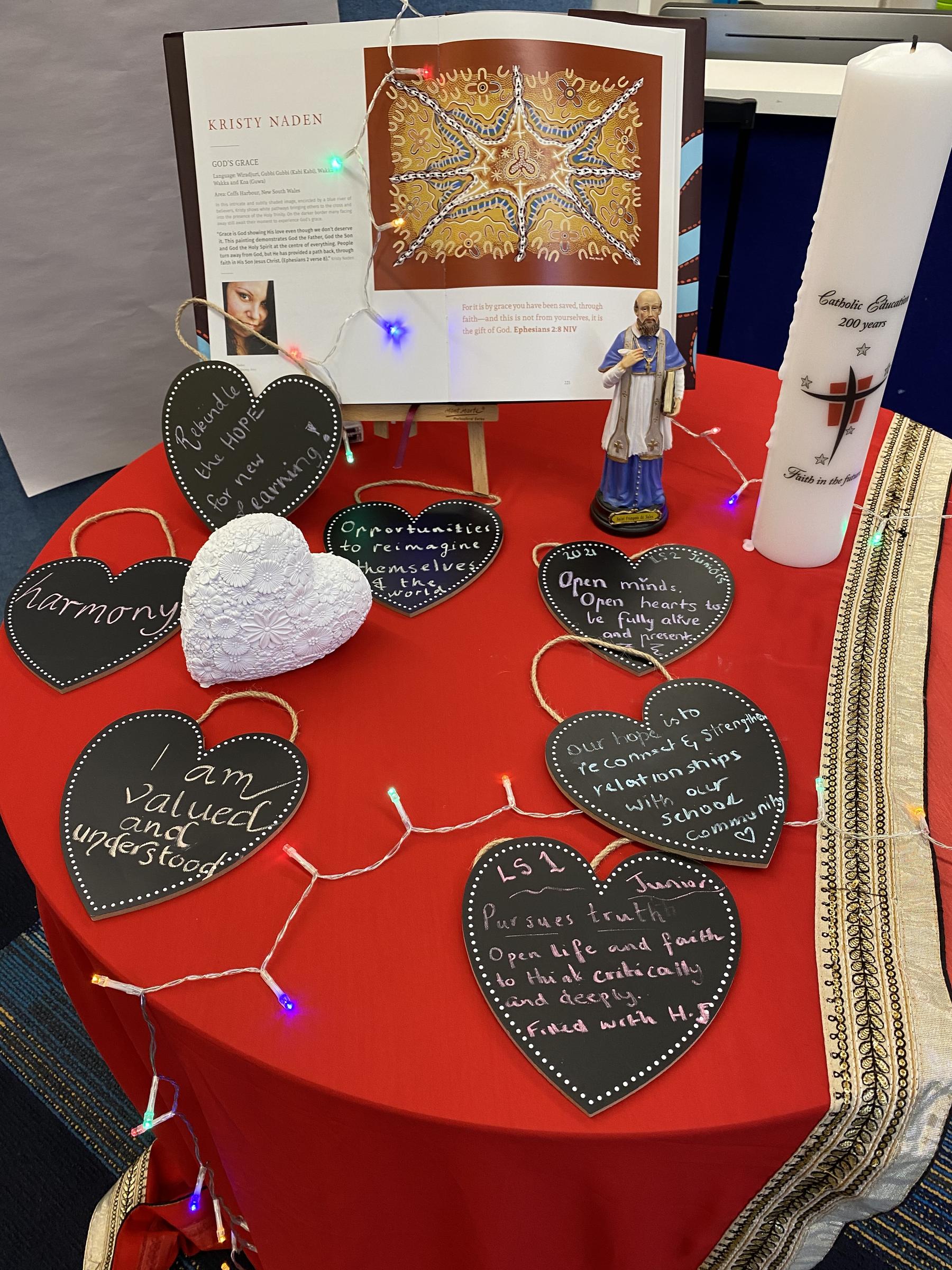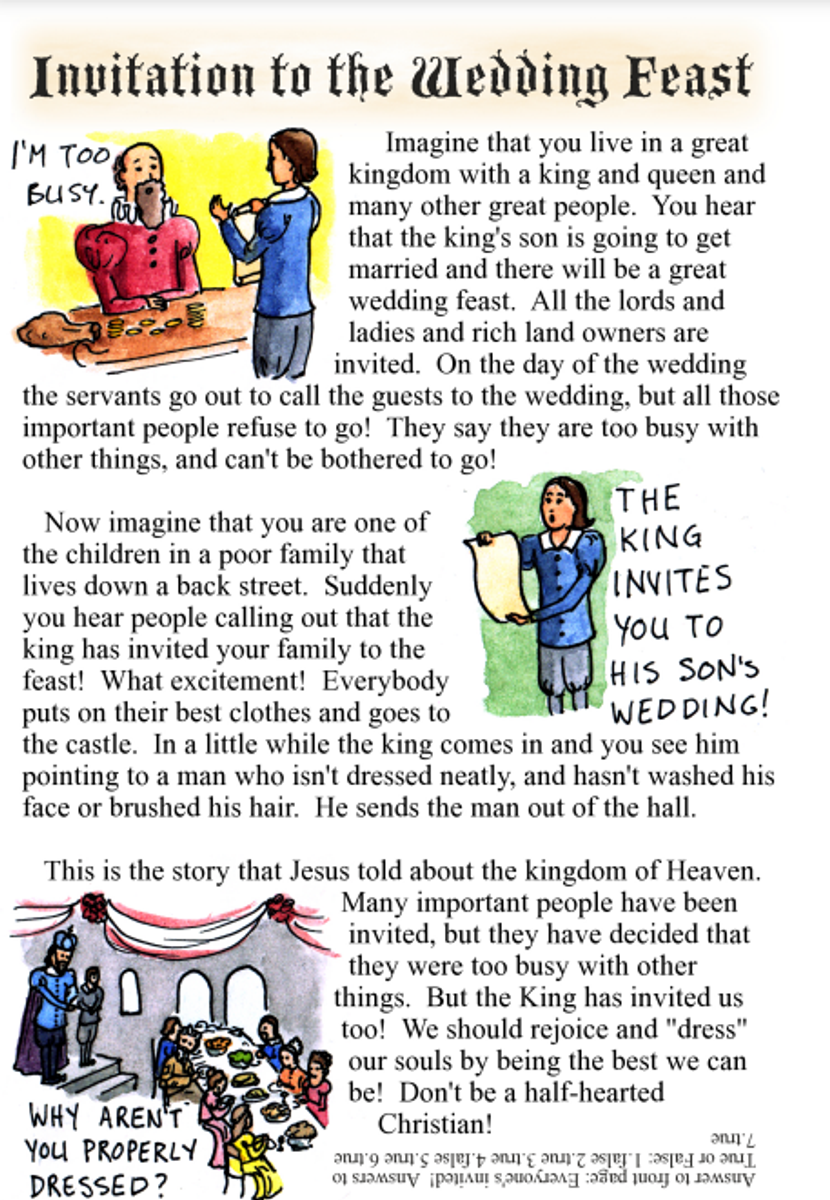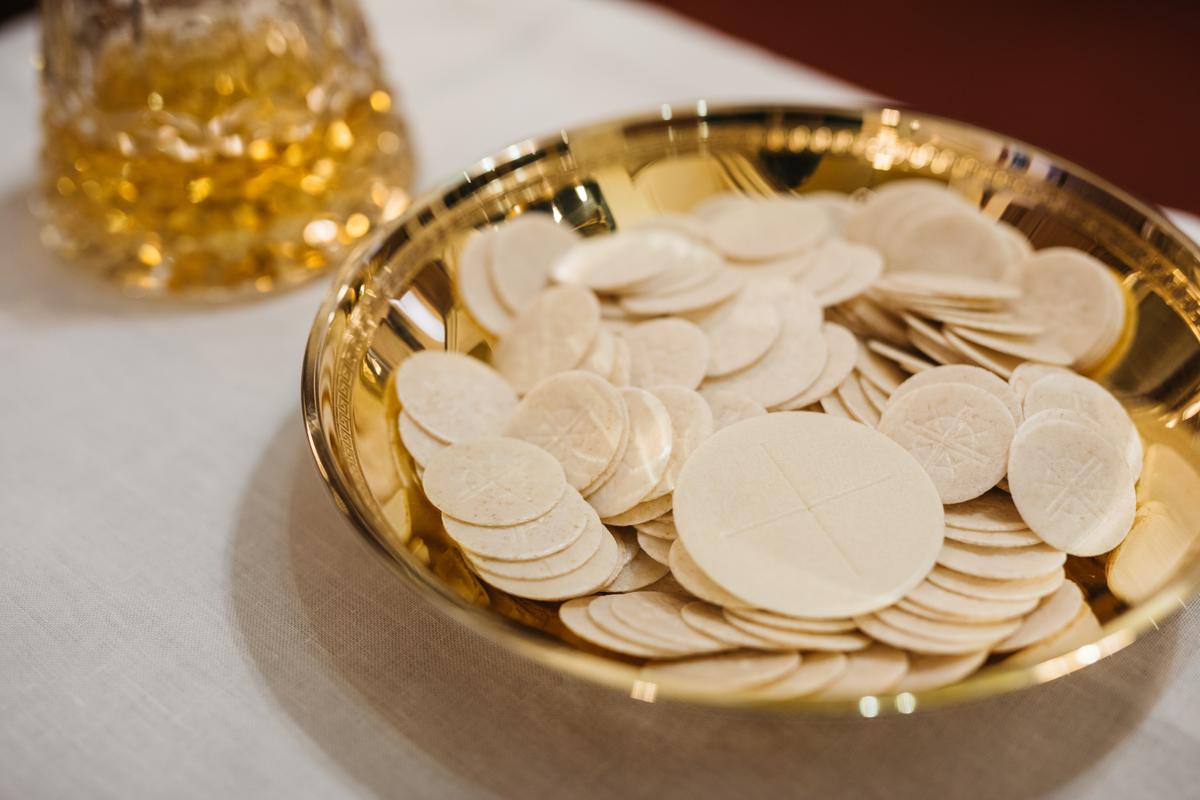Education in Faith

28th Sunday in Ordinary Time - Year A
Historical Context
This gospel parable is a reflection of the way in which the message of God has been extended to people through time. The first invitation was extended to the Israelites who initially accepted the message of God but in time lost the focus. Jesus further extends the invitation to the Gentiles, viewed by the Jews as unworthy of such a relationship with God.
Gospel Focus – ‘How did you get in here?’
In light of the inclusive kingdom metaphor in this passage, the final portion of the gospel may be a bit troubling to readers. When a guest is not wearing a wedding garment he is cast out of the banquet. We might say that being invited at the last minute the guest was unable to find suitable clothing. It is a sign that although he has been an unlikely inclusion in the banquet, he has not made any effort to respond to the generosity of the king and take up one of the cloaks that would have been provided and thus give due honour to his host. This is symbolic of those who refuse to change their ways and do not live as followers of Jesus even when they have been included in the kingdom.
Discussion Starters
- In the parable, why do you think the original guests refused the call to attend?
- Why did Jesus tell this parable to the Jewish Chief Priests and elders?
- What is the message of this parable for a modern audience?
- Today, who would be the equivalent of the people brought in to the banquet from the roads?
- What is a practical way in which you can be more inclusive of others?
- When have you ever excused yourself from an invitation because it was ‘inconvenient’?
- What message was Jesus trying to convey to the Chief Priests and elders through this parable?
- What is the message of this parable for a modern audience?
- Who are the people in today’s society represented by the guests brought in from the roads?
- What does the expulsion of the ill-dressed guest tell us about responsibilities?
Sacramental News 2024
To assist us with the administration and preparation of Sacraments for 2024, we ask you to fill in the Operoo form below, to indicate if your child will be receiving a Sacrament next year in 2024.
Junior and Senior parents ACCEPT or DECLINE this invitation. Dates for Sacraments will be published in our school newsletter.
Reconciliation: baptized Catholics in Year 1, 2 and 3 or above.
Next year in 2024, children in:
- Grade 2 and Grade 3 will receive Reconciliation.
- Grade 3 and Grade 4 will receive Eucharist.
- Grade 6 will receive Confirmation.
Reconciliation: baptized Catholics in Year 2 and 3.
Eucharist: baptized Catholics in Year 3 and 4 or above who have celebrated their Reconciliation.
Confirmation: Year 6 Catholics who have received the Sacraments of Baptism, Reconciliation and Eucharist.
If you have any further questions regarding your child receiving these Sacraments, please do not hesitate to contact me at the school.
Yours Sincerely,
God Bless
Rozeta Ambrose
rambrose@sfslynbrook.catholic.edu.au
;


